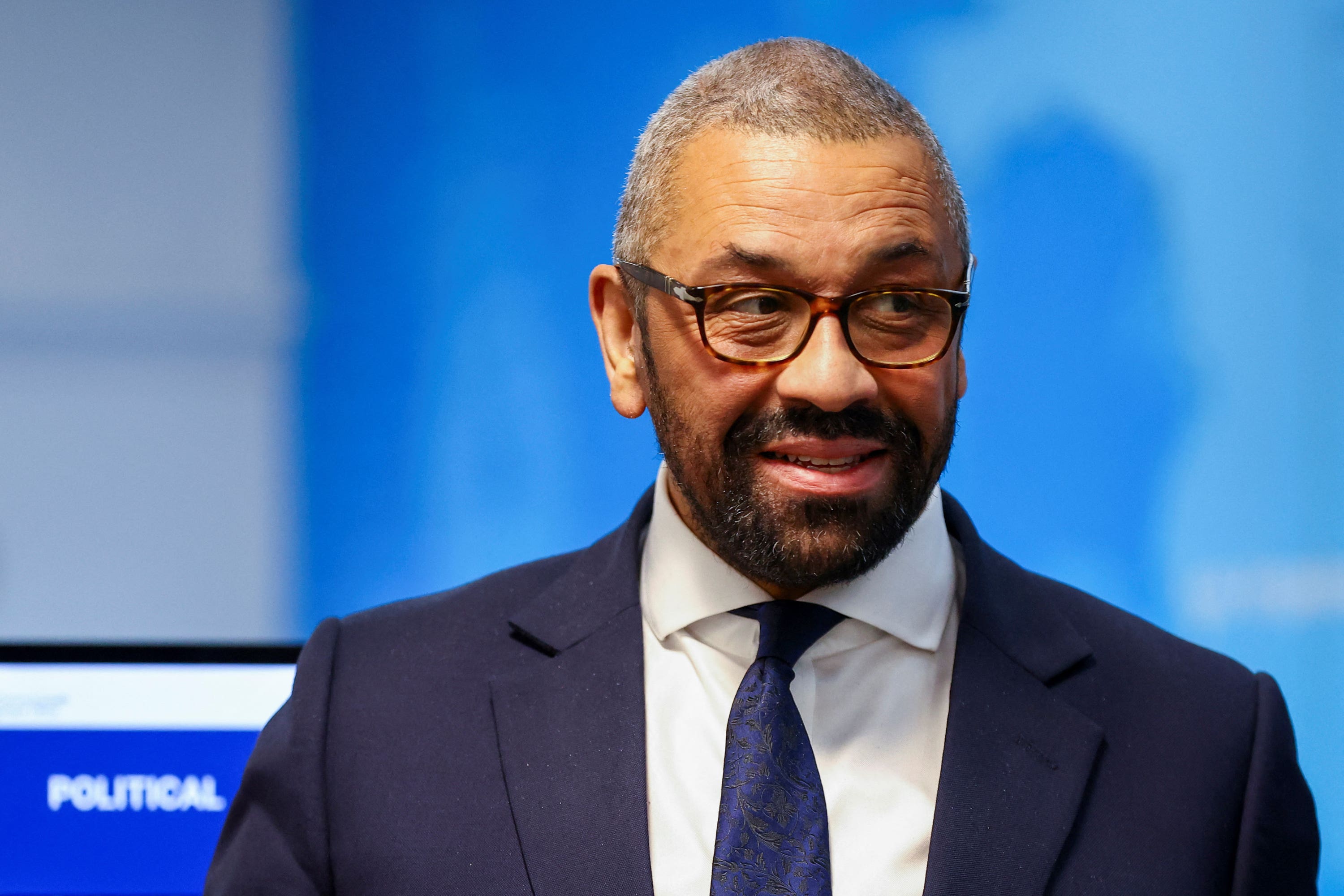British mission in Sudan ‘not over’ despite end of airlift, says Cleverly
Foreign Secretary James Cleverly said officials and military assets would remain around Port Sudan to help Britons.

Your support helps us to tell the story
From reproductive rights to climate change to Big Tech, The Independent is on the ground when the story is developing. Whether it's investigating the financials of Elon Musk's pro-Trump PAC or producing our latest documentary, 'The A Word', which shines a light on the American women fighting for reproductive rights, we know how important it is to parse out the facts from the messaging.
At such a critical moment in US history, we need reporters on the ground. Your donation allows us to keep sending journalists to speak to both sides of the story.
The Independent is trusted by Americans across the entire political spectrum. And unlike many other quality news outlets, we choose not to lock Americans out of our reporting and analysis with paywalls. We believe quality journalism should be available to everyone, paid for by those who can afford it.
Your support makes all the difference.The British mission in Sudan is “not over yet” despite the end of the evacuation airlift, the Foreign Secretary said.
James Cleverly said the situation remained dangerous and officials were still in Port Sudan to help Britons seeking to leave the country.
The final evacuation flights left Sudan on Monday for Cyprus, with anyone seeking to leave now relying on making their own way to safety through Port Sudan or at land borders into neighbouring countries.
During the airlift – the longest and largest by any western nation in Sudan – 2,341 people were evacuated on 28 flights, according to No 10.
Downing Street said 1,195 were British nationals, while 1,087 people from other nations, including Sudanese dependants of British nationals, were also helped to leave.
No 10 confirmed that, as of Monday, 18 Sudanese clinicians had left the country as part of the UK evacuation.
Mr Cleverly told GB News: “There is still an ongoing humanitarian situation, we still have a presence at Port Sudan, both a military presence and a number of other government officials to help British nationals and their dependents leave the country.”
He added: “We will ensure that we maintain a presence to support British nationals, because the situation in Sudan, sadly, is still volatile, and it is still dangerous.”
As well as officials and military personnel in Port Sudan, HMS Lancaster is off the coast to support them.
Mr Cleverly said the evacuation from Sudan would have a “significant” cost to taxpayers.
But he told LBC Radio: “What we have found increasingly now, as people use those land routes to Port Sudan, in many instances they are less in need of an air evacuation from Sudan itself.
“There are a number of options available from Port Sudan, including a ferry across to Saudi Arabia.”
He added: “At the moment we have a warship just off the coast of Port Sudan, we have a cross-Whitehall team of officials in Port Sudan to help British nationals leave the country.
“We can scale that up, or indeed scale that down, according to circumstances.”
The international focus is shifting to preventing a wider humanitarian catastrophe in the region and Mr Cleverly warned that any further fighting would hamper relief efforts.
The United Nations said Sudanese army chief General Abdel Fattah Burhan and his rival General Mohammed Hamdan Dagalo, the head of a paramilitary group known as the Rapid Support Forces (RSF), have agreed to send representatives to the negotiation table in a bid to establish a more stable truce.
Generals Burhan and Dagalo, both with powerful foreign backers, were allies in an October 2021 military coup that halted Sudan’s fraught transition to democracy, but they have since turned on each other.
Mr Cleverly told BBC Radio 4’s Today: “Where there is live conflict, our ability to provide… humanitarian support is massively degraded.”
He added: “We have given aid to Sudan, we are giving support to countries in the region, we will continue to push for an extension of the ceasefire and a permanent end to the conflict because that is the best way to maximise the effectiveness of our humanitarian support.”